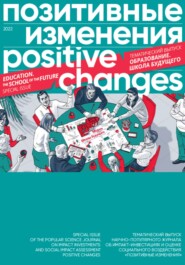 Полная версия
Полная версияПозитивные изменения. Образование. Школа будущего. Тематический выпуск, 2022 / Positive changes. Education. The school of the future. Special issue, 2022
Teachers and parents can help improve children's social and emotional skills by building their relationships with children and using hands-on learning techniques.
Contrary to popular misconception, children are not born with a fixed set of abilities. Teachers and parents can play a role in children’s development. Strong parent-teacher-child relationships and the use of real-life examples and hands-on experiences while learning are some of the most efficient approaches to building the sense of independence, responsibility, teamwork skills, and self-confidence in children.
Since “skills breed skills", early exposure to social and emotional skills may have a greater effect. Social and emotional skills are more flexible between early childhood and adolescence. Early «investment» in the development of the child’s social and emotional skills is especially important because these skills develop gradually based on past «investments» in them. In addition, people with higher levels of social and emotional skills (e.g., self-confidence and perseverance) are likely to benefit more from further investment in cognitive skills (e.g., math and science lessons).
Social and emotional skills can be reliably measured across cultural or linguistic boundaries. Social and emotional skills can be reliably measured for different age groups within cultural and linguistic boundaries. This includes personality self-assessment, behavioral qualities and objective psychological tests. Some of these indicators predict a variety of success factors in education, the labor market, and society as a whole.
SOFT SKILLS IN RUSSIAN EDUCATION: THE BEGINNING OF THE CONVERSATIONHaving identified the range of skills and character traits that can be classified as soft skills, and having made sure that the development of these skills in children can be influenced and measured, we offer a brief look at how Russian schools see the teaching of such skills. To begin with, we must say that the Federal State Educational Standards (FGOS) actually take soft skills into account. For example, the FGOS of basic general education (grades 5–9) states that the following must be provided in the course of education:
• development of personal qualities necessary for solving everyday and unconventional tasks in order to adequately orient oneself in the surrounding world;
• shaping a culture of lifelong learning and self-development;
• personal development of the students, including civic, patriotic, spiritual, moral, aesthetic, physical, labor, environmental education, and recognition of the value of scientific knowledge.
However, education experts agree that both the FGOS and schools working under the traditional educational model do not venture beyond simply declaring the importance of teaching the above-mentioned qualities. That is why we invited representatives of alternative schools and experts in alternative education to talk about soft skills.
Yaroslava Kabanova, director of ILI school (St. Petersburg), says the need for soft skills is widely recognized in Russian education today, including in the Ministry of Education; all modern schools are trying to pay attention to these skills. You can hear soft skills being talked about at every education conference: "Everyone talks about it incessantly and implements it as best as they can. Implementation is the biggest issue. Everybody understands how important soft skills are, but few realize how they can be implemented and taught.”
Let’s focus now on a few conceptual issues related to the topic of soft skills reported by experts.
Why is there so much talk about soft skills today?
Alexey Semyonychev, the administrator of the largest Russian-language Facebook group[7] on alternative education (44,500 members), founder of the Alternative Education in Russia project, and author of books on methods of family education, says soft skills describe "a certain type of thinking that has recently become highly relevant. Why did this happen? Because the world is changing rapidly, it is becoming global, more complex, it is moving from vertical connections to horizontal ones. The Internet is an example of horizontal connections, where you can easily communicate with someone from Nepal, Moscow or Antarctica, without leaving your home in the United States. Language does not matter in this case, the only thing that matters is your desire to communicate. That’s what soft skills are about. They are the skills that enable us to make horizontal and productive connections with each other.”
According to Semyonychev, horizontal connections between people represent a new type of relationship, which started developing rapidly in the 21st century. These are pretty well known things. Like, how do we negotiate with one another? How do we communicate non-violently? How do we understand each other’s emotions?
Soft skills are the skills that enable us to make horizontal and productive connections with each other.
Why is there no place for soft skills training in traditional schools?
Svetlana Marzeyeva, author of the A’ducation project, head of the Association of Family Schools, board member of the League of Educators, believes that talking about soft skills is "a way to identify educational needs in modern terms and to show the direction in which education needs to change.” Svetlana says the school’s greatest problem is that it is "dead as a learning institution; it is only effective as a children’s storage facility. If there is one thing public schools in Russia are good at, that’s 'keeping’ children. Parents need a place to keep their children at, while they are at the office. And while you keep the children in storage, you have to keep them busy. Therefore, each subject is studied to extreme depths, both theory and practical application. Remember Russian classes, where we studied conjunctions vs. syndetic words? Do you still remember the difference? Or in biology, the minutest details of how the body functions, with all the medical names, like three kinds of capillaries, have you ever used that knowledge? The same is true about every subject. Schoolchildren are overloaded with meaningless memorization, with no time left for anything else.”
Alexey Semyonychev adds to the discussion from the opposite side. He believes it is impossible to teach soft skills in the modern (traditional) school, because that school is based entirely on vertical connections: "Who needs soft skills when we have vertical connections, like those between the boss and his/her subordinates? The traditional school is a vertical system. Soft skills are out of the question there, because soft skills are based on respect for one another.”
According to the expert, the traditional school is a system where everything that can be killed in the soft skills system, gets killed. "What kind of communication can there be when the teacher is sitting up there talking down to you? The ability to choose – what does a student choose in school? He or she doesn’t choose anything. The ability to understand emotions – who’s going to teach them to understand emotions? A teacher who has 30 students in his class?"
The school’s grading system also does not take into account soft skills. Meanwhile, critical thinking is based on the child having to assess critically what is happening around them, that is, have his or her own opinion. "I’m afraid that’s even worse in school. Having your own opinion at school is outright a health hazard," the expert says.
The whole reality around the child in a regular school goes against many of the principles of soft skills. "Before introducing soft skills, we need to change the school first," Alexey Semyonychev sums up. After school, when people are older and no longer pressured by teachers and the school environment, they can finally start developing their soft skills with greater success.
THE HIDDEN CONTENT OF EDUCATIONSpeaking of teaching soft skills in schools, experts touch upon the connection between education and upbringing. Yaroslava Kabanova points out that we often forget that a child spends a great amount of time at school, where he or she develops as a person. Education is about teaching as much as about upbringing. If we leave upbringing out of the curriculum, the child still receives it from the adults around him: teachers, tutors, everyone else at school.
"It is very important to have the right kind of people around the child. The school’s job is to develop the child’s circle of communication, to lay down the basic values, concepts, principles, to build up the child’s personality, to help him find his way, to help him in his development, in communication. Because that’s the society we are going to have in five years; that’s the environment we are all going to live in. That’s the future we are shaping," Yaroslava Kabanova says.
Here it makes sense to consider the pedagogical and methodological term "hidden content of education".
THE HIDDEN CONTENT OF EDUCATION"Education is determined by the specific atmosphere at the educational institution, the 'school spirit' as much as it is by the set of academic subjects, specializations, the volume of material taught, etc.
The essence of this phenomenon is revealed by the term "hidden curriculum," used by many Western researchers. To me personally, the term "hidden content of education" seems quite acceptable. It can be accepted as a working definition precisely because in the very process of revealing its theoretical and practical content, we will inevitably come to answering the question of what is actually taught and what should be taught in school.
I side with the researchers of this hidden content in that it should include the following phenomena of school organization:
• various kinds of differentiation of students by their abilities, including our domestic invention of recent years – remedial classes and special classes for gifted children (the "fools' classes" and the "nerds' classes", as children themselves refer to them);
• the real power structure in the school (totalitarian or hierarchical, democratic or liberal);
• the language of a class or school (not formally, of course, but by the actual semantics, tone, style, and volume of vocabulary in use);
• the established practice of telling the teacher what he or she expects vs. what the student actually thinks;
• ability to act in the situation of a test or exam (not the cultural forms of behavior in a test situation, but the established rules of cheating, peeking, guessing, etc.);
• the actual distribution of study time (not by curriculum or schedule, but by the time actually used by the student – some students really have 12 hours of study time a day, while others don't have even half an hour)."
Tubelsky, A. N. The way of school life – the hidden content of education // Voprosy obrazovaniya. – 2007. – Issue 4, pp. 177–181.Alexey Semyonychev commented on the connection between the hidden content of education and soft skills development as follows: "Without even noticing, a child is taught other skills besides knowledge. When the teacher enters the classroom, everyone must stand up. Students talk to their teachers exclusively on formal terms and by their full names, while teachers talk to the kids informally, addressing them by first name only. Students must obey the teacher, no matter what he or she says. Students in class have no right to express their opinions. This results in a child raised into obedience, into "my opinion can wait" attitude. There is no need to learn to negotiate, because the teacher has the last word; you are not allowed to get creative during the class as you may get an «F» for that. Do the tests, nothing else, creativity is not required."
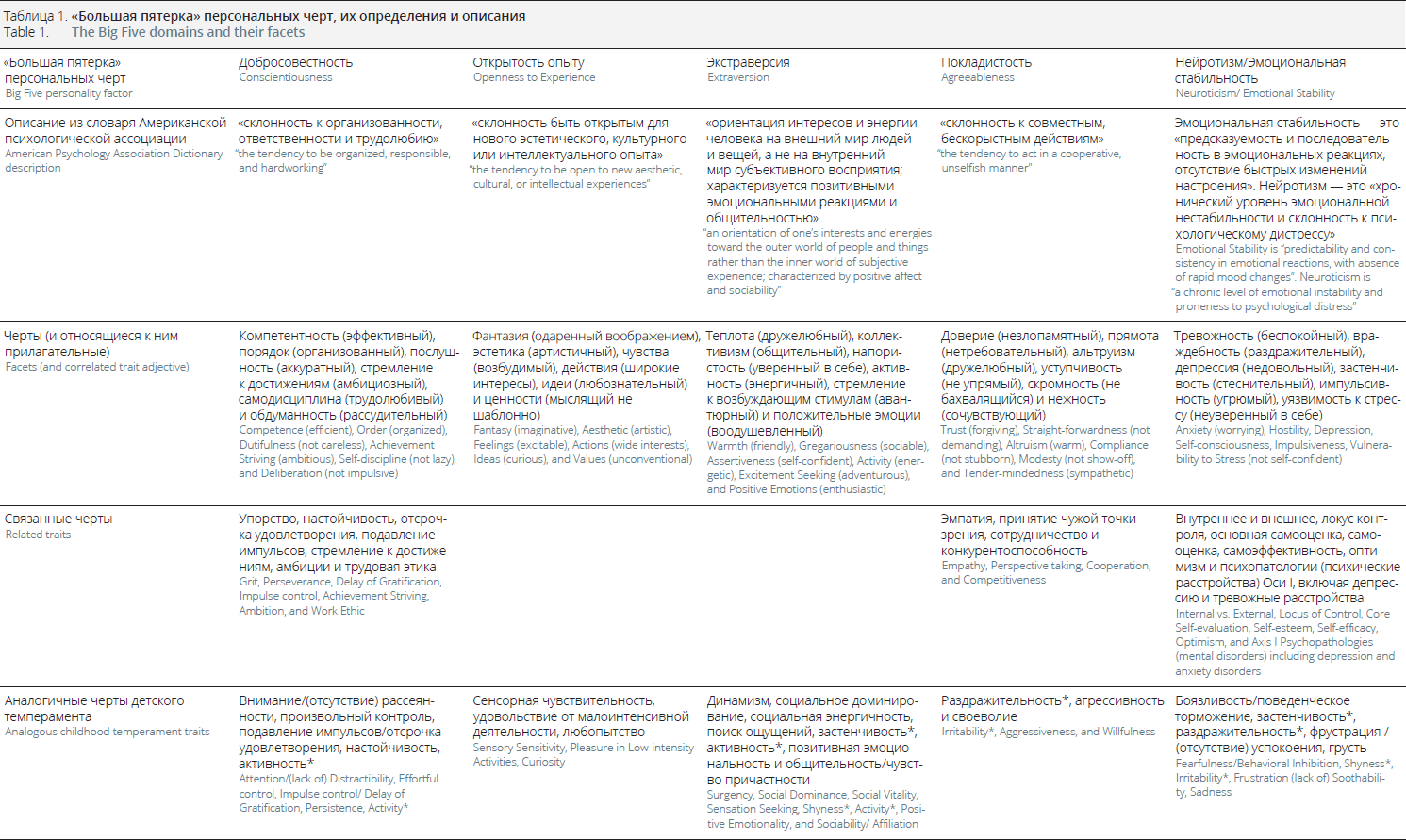
* These personality traits can related to two components of The Big Five
Source: John OP, Srivastava S. The Big Five trait taxonomy: History, measurement and theoretical perspectives.
Chapter 4. In: Pervin LA, John OP, editors. Handbook of Personality: Theory and Research. New York: The Guilford Press; 1999. pp. 102–138.
Quoted from: Heckman J. J., Kautz T. (2012). Hard evidence on soft skills. Labour Econ. Aug 1; 19(4): 451–464
WILL SOFT SKILLS TRAINING BE UNNECESSARY AT THE SCHOOL OF THE FUTURE?
We can say that experts agree that if the school is properly configured with "hidden educational content”, then children will acquire soft skills naturally, as part of school life.
Svetlana Marzeyeva believes that it is not necessary to impose either "hard” or "soft” skills on children: "Any school that wants to meet the current trends must put aside control and evaluation and focus instead on helping students develop and master their personal educational goals; that is, children in today’s school must cease to be objects of educational activity. As soon they become subjects, the question of "hard” and "soft” skills will fade away by itself. It doesn’t matter what to teach, it matters who to teach. And that determines how they will be taught.”
Alexey Semyonychev explains that if the principles developed in alternative education are implemented in practice, this will effectively mean that separate, special training in school for flexible skills will no longer be necessary. "Soft skills, democratic education, free education are parts of a common democratic concept. If the schools change towards alternative, informal education, as we are planning it, "soft skills” training will no longer be necessary. The school system itself, each teacher’s mode of instruction, the system of school organization – all this will work to ensure that the child grows up as a free and independent person, right from the start. In turn, freedom and independence themselves will give birth to all the ’soft skills’ you can think of,” the expert says.
What can change and improve a school? The three slogans of the French Revolution – liberty, equality, fraternity – are as relevant here as never before.
What can change and improve a school? The three slogans of the French Revolution – liberty, equality, fraternity – are as relevant here as never before. "The school of the future should at least be a free school, which respects every student and is free from any form of violence. Violence is inability to negotiate. And the ability to negotiate is a soft skill. The school of the future should not be based on child abuse or classroom abuse”, Alexey Semyonychev summarized. Introducing twelve Russian schools that have integrated soft skills training into their curricula.
ABOUT THE SELECTION OF SCHOOLS AND PRESENTATION FORMATThe types of schools selected for this review are based on the results of the School of the Future study conducted by the analytical department of the Positive Changes Factory in the first half of 2022. The study identified key models of school education in Russia and proposed criteria for their classification and evaluation. One of the criteria is “soft skills orientation."
When selecting specific cases for this review, we were guided by the recommendations of the experts interviewed in the School of the Future study.
The resulting sampling of schools is not intended to be representative but rather will serve as an illustration of the variety of approaches Russian schools take to soft skills instruction.
Most of the schools presented in the review are located in Moscow and St Petersburg, because such schools have appeared here sooner than in other parts of the country. Besides, schools in Moscow and St. Petersburg tend to publish more detailed and up-to-date information on their websites.
Information about the school opening year, types of instruction and the school's curriculum is based on information available on the school's Web site and from other public sources, quoted as close as possible to the source.
Information about the inclusion of soft skills in the curriculum is based on the information on the school's website. To prevent overloading the review, we only include specific excerpts and quotes showing the school's emphasis on soft skills. For complete information on missions, approaches, curricula, etc., go directly to the schools' websites.
Please note that in some cases it is impossible to understand from the information on the school website whether the school works in accordance with the FGOS or not. Alternative schools do not have to follow the Federal State Education Standards (FGOS). The school websites do not always make it clear what classes are available. Often there is no information on the opening date of the school. The authors of this review and the Journal are not responsible for any incomplete information on school websites.
THE NEW SCHOOL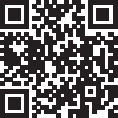
https://home.n.school/about_us
OPENING YEAR 2017.
INSTRUCTION
Grades 1–11.
STUDY PROGRAM
General secondary education school. It strives to guarantee both achieving certain academic results (for example, successful examinations) and maintaining a humanistic vector of self-determination, personal development, attention to each child, his or her personal movement.
ABOUT SOFT SKILLS
The school’s mission is to give children from different social backgrounds an opportunity to develop and demonstrate their cognitive, creative and personal abilities through continuous growth, education and upbringing, and eventually find the best ways to achieving happiness and complete self-fulfillment in the modern society, thus contributing to its development. Our goal is to teach children to live independently, based on their authentic positions, to make informed decisions and independent choices.
School values are curiosity and development; openness and self-determination; responsibility and choice; non nobis solum ("not just for yourself"); comradeship.
KHOROSHKOLA (THE GOOD SCHOOL)
https://hi.horoshkola.ru/
OPENING YEAR 2013.
INSTRUCTION
Kindergarten, pro-gymnasium (grades 1–4), gymnasium (grades 5–11).
STUDY PROGRAM
The instruction includes both standard academic disciplines (FGOS NOO) and activities aimed at developing creative thinking, emotional intelligence, communicative competence, cooperation and teamwork, systemic thinking, and information literacy. The curriculum is focused not only on subject literacy, but also building soft skills. There is an option to study under the International Baccalaureate program.
ABOUT SOFT SKILLS
The values of Khoroshkola are reflected in the portrait of its student. It is based on four basic values: awareness, respect, responsibility, and caring.
It is the school of the 21st century competencies. "Learning to learn” throughout life is the key competency being developed at Khoroshkola.
By developing critical and systemic thinking, emotional intelligence, information literacy and design thinking, communication and cooperation, we enable our students to adapt quickly in a rapidly changing world.
THE SMART SCHOOL. A CHAIN OF SCHOOLS AND FRANCHISES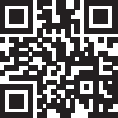
https://smartschool.group/
OPENING YEAR 2016.
INSTRUCTION
Kindergarten, elementary school, high school. 20 branches
STUDY PROGRAM
Education according to FGOS standards, supplemented by a variety of extracurricular activities. Children receive knowledge aimed at the development of hard and soft skills and personality traits. In our work we are guided by the Finnish educational model.
ABOUT SOFT SKILLS
Our schools use the original SMART methodology:
S – Social-emotional intellect
M – Motivation
A – Agile
R – Responsibility
T – Track
We strive to teach children to understand themselves, to interact with the others, to show a flexible response to a rapidly changing world, and to never retreat in the face of difficulties.
THE WAY OF THE GRAIN WALDORF SCHOOL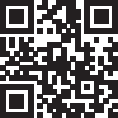
http://www.putzerna.ru/
OPENING YEAR 1998.
INSTRUCTION
Kindergarten, Grades 1–11.
STUDY PROGRAM
The school uses the Waldorf pedagogy adapted to Russian educational standards, which implies:
• personalization and differentiation of learning;
• the one-classroom-teacher principle;
• active engagement of the parents;
• the main-lesson principle, teaching by "epochs";
• an imaginative and artistic approach to teaching;
• the versatility of education;
• developing a strong-willed culture through a variety of practical activities;
• the study of music, painting, eurythmy, introduction to musical instruments, handicrafts;
• no grade point system.
The curriculum differs significantly from the usual educational curriculum, but it is approved by the Department of Education. In high school, students prepare for the USE and pass it safely.
ABOUT SOFT SKILLS
A freely self-determined, creative person with the health, abilities and strength for conscious choice and self-actualization, who perceives the world holistically and imaginatively – this is the goal of the Waldorf school in working with each child.
Why Waldorf? The Waldorf School is of interest to those parents who want holistic development for their child. During the school years it is important for a person to develop not only thinking, but also feeling and free will. All standard subjects are present in the Waldorf School curriculum: mathematics, native language, literature, history, geography, physics, chemistry, biology, foreign languages, and computer science. However, some of the subjects are aimed at developing the senses and the will.
The main thing is to make sure that a person, after growing up, bravely takes on everything new, feels interest and ability to solve problems in life. One important quality of Waldorf students identified in studies of learning abilities is creativity, non-standard thinking; in studies of social interactions – tolerance, openness.
THE MIKHAILOVA MONTESSORI SCHOOL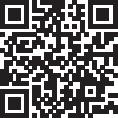
https://montessori-school.ru/
OPENING YEAR 1997.
INSTRUCTION
Kindergarten (ages 3–6), school (ages 6–15).
STUDY PROGRAM
Development Center – Kindergarten – School.
ABOUT SOFT SKILLS
The School’s MISSION. With love and joy, in cooperation with the parents, we help the children in their self-development and education, thus contributing to the creation of a society of independent and responsible people.
The MMS is a place where children gain independence and autonomy, parents gain a community of similarly conscious parents, peace and confidence in their children’s future, and teachers, treating each child with respect and love, become guides for children into a world of happy adults.
Our Values:
• The special roles of the teacher and the student. Children and adults work together in an atmosphere of mutual assistance and respect for each other.
• Continuous self-education and independence. Nurturing responsibility and independence as the key to life.
• Caring for the world we live in and leave behind.
The instruction takes into account the two poles of a child’s development: gaining independence and becoming a part of the collective. Children learn to make choices and negotiate with others.

